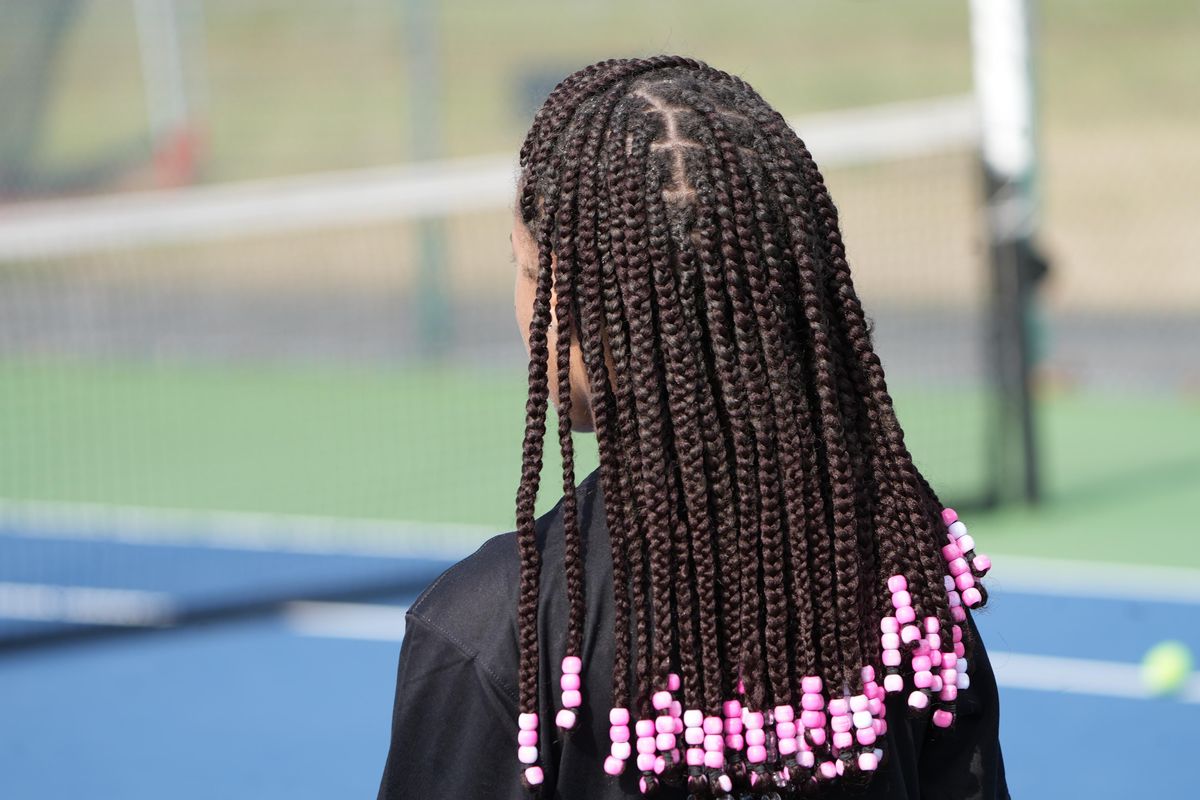'Sweet' viral video of weightlifter's teammates taking out beads is why the CROWN Act is needed

Viral videos come and go. The best ones warm your heart and leave you smiling and feeling like your faith in humanity is restored. That’s what many people felt as they watched the video of a weightlifter for Bruce High School in Mississippi, whose teammates and competitors helped remove her hair beads so she could qualify to lift. The powerlifting competition was a state championship, and after the lifter finished her first lift squat, a judge informed her coach them that she could not compete in the next lift with beads in her hair, according to Holly Preston Wilkes, who shared the story to her Facebook page.
The action of the girls watching this unfold is heartwarming. These fellow weightlifters didn’t hesitate to jump in and help the soon-to-be disqualified student when they saw her begin to take her beads out of her hair. Eventually there were so many hands in her head that she had to stop helping, and in the end all of the beads were out before she took the platform for her next lift. When reading the viral post, which now has more than 34,000 shares, it appears the weightlifter was singled out due to a rule about “jewelry etc.” but beads are not jewelry. Beads actually serve a functional purpose outside of some beauty aesthetic.
It’s no secret that the majority of Black people have a different hair texture than other ethnicities, and even within the Black community hair texture can vary from person to person. Hair textures within the same family can also differ, just like any other feature, and for the majority of Black people, our hair defies gravity. Little Black girls grew up wearing ballies, barrettes and beads on the ends of their hair, and others misunderstood their use, assuming they served one purpose, to be pretty. In fact, the use of these items helps weigh the hair down so it doesn’t stick up, which can be seen as unkempt by societal standards (thankfully this is quickly changing with more people embracing their natural hair).
This is why the video that was viewed as a sweet moment serves as a troubling reminder to some Black people. Our hair is somehow inappropriate, even when it’s neatly placed in a protective hairstyle as this weightlifter’s hair was styled. As the video plays, the high schooler’s braids begin to slowly raise as the beads are removed from the ends. There’s no clip showing the end result, but it’s obvious that the beads are there for more than decorative purposes. If there was concern about the hair possibly being in the eyes of the competing weightlifter, then a borrowed headband or ponytail holder would have sufficed. The idea that she was singled out due to a questionable rule that would deem beads in the hair as jewelry simply prove why the CROWN Act is needed.
Representation of different cultures is needed when sweeping rules are made for sports, workplaces and other areas, because no small group of people can know what is culturally significant of all cultures. We can’t grow unless we ask questions and listen to people that may look different than us. This is especially true when we are writing laws and rules that are to be applied generally without cultural considerations that may not align with what was written. The passing of the CROWN Act will help eliminate rules that may be unintentionally harmful to Black people, who are simply attempting to care for their hair in a way that is not only pleasing to their own eye, but protected from damage.
- Court rules Texas school system cannot make Black teen cut his ... ›
- Another Black student suspended for his dreadlocks. And that's not ... ›
- Illinois passes a law banning hair discrimination in schools. - Upworthy ›
- Pittsburgh news anchor wears braids on air and fans cheer - Upworthy ›

